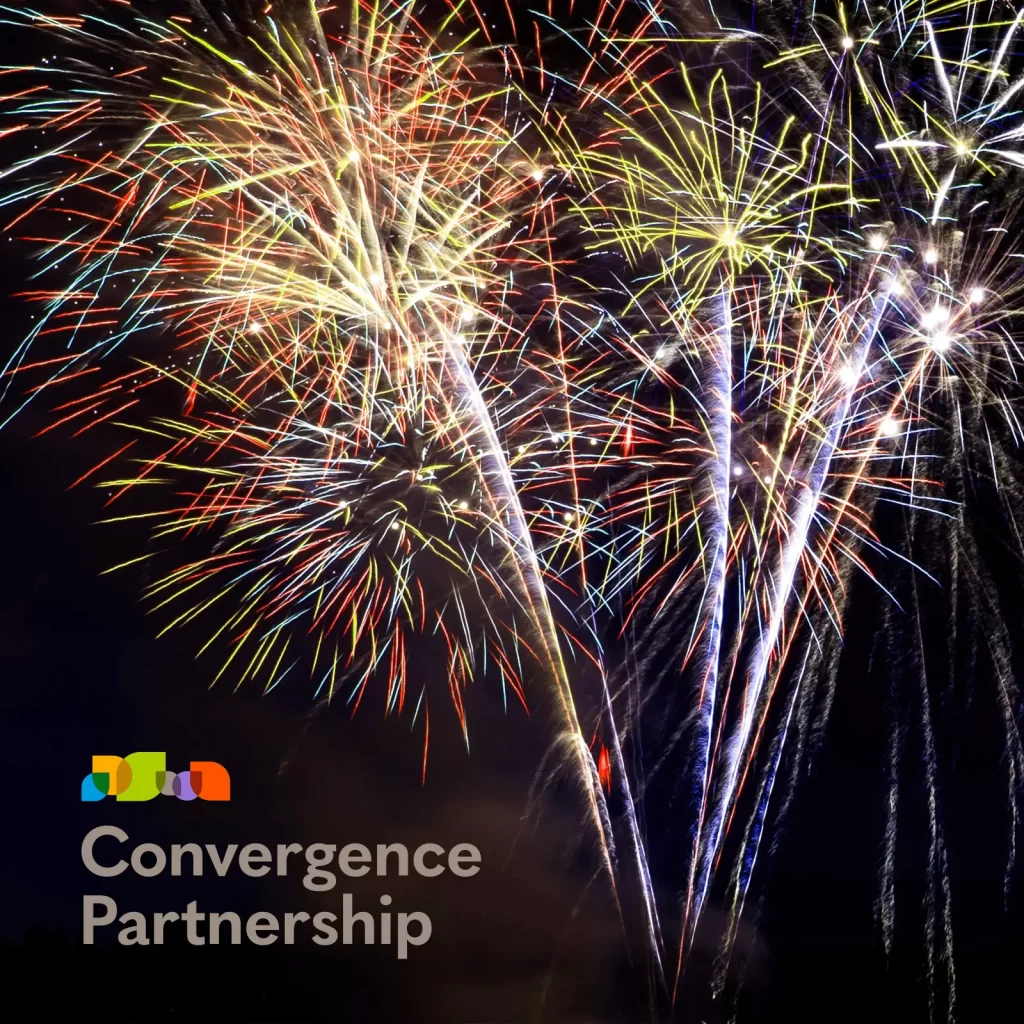National funder collaborative announces staff and fiscal home transition to NEO Philanthropy, stepping into its new strategic direction to support racial justice and health equity.
New York, NY – Entering its fifteenth year, the Convergence Partnership announced it is becoming an independent entity, with Amanda Navarro at the helm as executive director and Michele Silver as director of programs. The move comes as Convergence Partnership steps into its new strategic direction to focus its efforts on funding community power through frontline organizations with Black, Indigenous and people of color leadership and staff, to advance racial justice and health equity in six states and large metro regions across the country.
“What is needed in this moment cannot look like it did in the past. It’s time for a new playbook that transforms philanthropy in a way that is unrecognizable. For Convergence, this means making and aligning investments that support grassroots organizers and efforts in moving us toward an inclusive, multiracial democracy. It also means continuing to look inward, to hold ourselves and our funder partners accountable for transforming practices that align with this goal,” said Amanda Navarro, who has led the collaborative for 13 years at PolicyLink where it was previously housed. “Today, I stand in the possibility of unity, justice, and equity for all of our communities. As Executive Director, I am committed to leading the Partnership in a direction that will help bolster and sustain the collective activism, engagement, and organizing needed to step into this vision together.”
In the last 14 years, Convergence Partnership has granted $13.5 million to community-based organizations and local foundations across the country focusing on health equity, including the Innovation Fund in 2009 which leveraged $59.7 million in local and federal funding and resulted in hundreds of local policy changes on equitable food access and community infrastructure improvements in under-resourced communities. The Partnership made $1.2 million in grants to 31 organizations, 29 of which are frontline organizations led by Black, Indigenous and people of color, to support COVID-19 relief and recovery efforts, a tangible step in its new strategic direction to deepen the Partnership’s connection between health equity and racial justice in their work.
Now in the second year of its new strategic direction, the Partnership, which is made up of eleven local, state and national foundations, is continuing to deepen their equity focus to center communities most harmed by structural racism.
“We are committed to this strategic direction and the Partnership. We have created a space where people from foundations with different priorities, practices, and funding approaches come together to push ourselves to break away from the comfortable and move into the necessary work for amplifying people power to drive change toward racial justice and health equity,” shared Monica Valdes Lupi, Managing Director, Kresge Foundation, a long-standing national partners of the collaborative.
“The link between health and racism is inextricable, and philanthropy needs to better address the role power plays in the structures that create health inequities,” shared Jeff Usher, Senior Program Officer, Kansas Health Foundation, who brings statewide expertise and context to ground the conversation with national funders. “We are eager to continue working on the leading edge to leverage national and local dollars to support grassroots leaders and efforts to make tangible change in their communities, with philanthropy as an aligned partner.”
The new strategies that Convergence Partnership is undertaking include investing in community power and agency to drive long-term structural change; elevating narratives and stories to shift public attitudes toward inclusion, belonging, and the dignity of all people; and, mobilizing and influencing funders to fundamentally shift their practices, relationships, and investments toward racial justice and health equity.
Becoming an independent entity led Convergence to partner with NEO Philanthropy, to serve as the Partnership’s fiscal home. Aligned with the Partnership’s values and vision, NEO Philanthropy has more than 30 years of experience helping nonprofit organizations and funders build movements for justice, equity, and dignity.
“NEO Philanthropy is passionate about our work as a funder intermediary, deeply committed to social justice and human rights,” said Michele Lord, president of NEO Philanthropy. “Convergence’s approach of testing ideas and taking on issues that individual institutions wouldn’t or couldn’t pushes the field forward in a way that is in great alignment with our work and what we hope is possible for philanthropy.”
This summer and fall Convergence Partnership will be releasing a report providing research and guidance for funders focusing on narrative change as well as season two of the podcast series featuring grassroots leaders who are building social, political, and economic power in the San Joaquin Valley in California; Kansas City, Missouri; Louisiana; Chicago; and Buffalo, New York.
Learn more about Convergence Partnership, its funder partners, and stories of work in cities and states across the country, at convergencepartnership.org.
